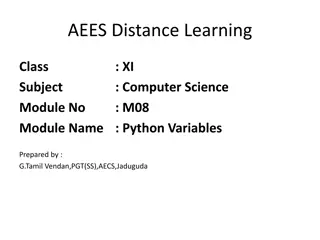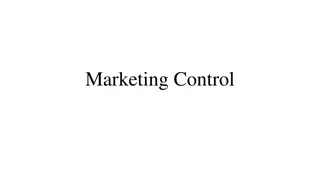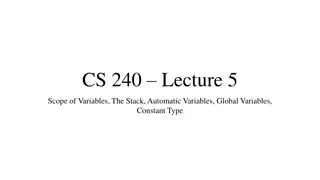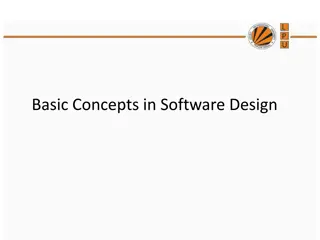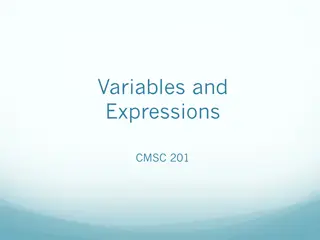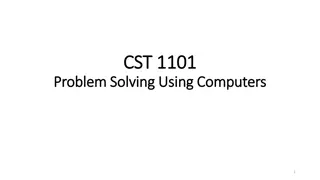Understanding Variables and Control in Research Design
In research design, variables play crucial roles as either dependent or independent factors, with extraneous variables potentially affecting study outcomes. Controlling for extraneous variables is essential to attribute effects solely to the independent variables. Research hypotheses aim to test predictive relationships between variables, while concomitant variables may also have interactions worth considering.
Download Presentation

Please find below an Image/Link to download the presentation.
The content on the website is provided AS IS for your information and personal use only. It may not be sold, licensed, or shared on other websites without obtaining consent from the author. Download presentation by click this link. If you encounter any issues during the download, it is possible that the publisher has removed the file from their server.
E N D
Presentation Transcript
Dependent Dependent and and independent independent variable variable A concept which can take on different quantitative values is called a variable. As such the concepts like weight, height, income are all examples of variables. If one variable depends upon or is a consequence of the other variable, it is termed as a dependent variable, and the variable that is antecedent to the dependent variable it is termed as an independent variable. For instance, if we say that height depends upon age, then height is a dependent variable and age is an independent variable. Further, if in addition to being dependent upon age, height also depends upon the individual s food habits, then height is a dependent variable and age and food habits are independent variables.
Extraneous Extraneous Variable Independent variables that are not related to the purpose of the study but may affect the dependent variable are termed as extraneous variables. Suppose the researcher wants to test the hypothesis that there is a relationship between children s gains in social studies achievement and their self- concepts. In this case self-concept is an independent variable and social studies achievement is a dependent variable. Intelligence may as well affect the social studies achievement, but since it is not related to the purpose of the study undertaken by the researcher, it will be termed as an extraneous variable. Whatever effect is noticed on dependent variable as a result of extraneous variable(s) is technically described as an experimental error. A study must always be so designed that the effect upon the dependent variable is attributed entirely to the independent variable(s), and not to some extraneous variable or variables. Variable
Control Control One important characteristic of a good research design is to minimise the influence or effect of extraneous variable(s). The technical term control is used when we design the study minimising the effects of extraneous independent variables. In experimental research, the term control is used to refer to restrain experimental conditions.
Research Research Hypothesis Hypothesis When a prediction or a hypothesised relationship is to be tested by scientific methods, it is termed as research hypothesis. The research hypothesis is a predictive statement that relates an independent variable to a dependent variable. Usually, a research hypothesis must contain, at least, one independent and one dependent variable. Predictive statements which are not to be objectively verified or the relationships that are assumed but not to be tested, are not termed research hypothesis.
Concomitant variable A concomitant variable (sometimes called a covariate ) is a variable that is not of primary interest in a study, but nonetheless may have some interaction with the variable(s) of interest being studied.







